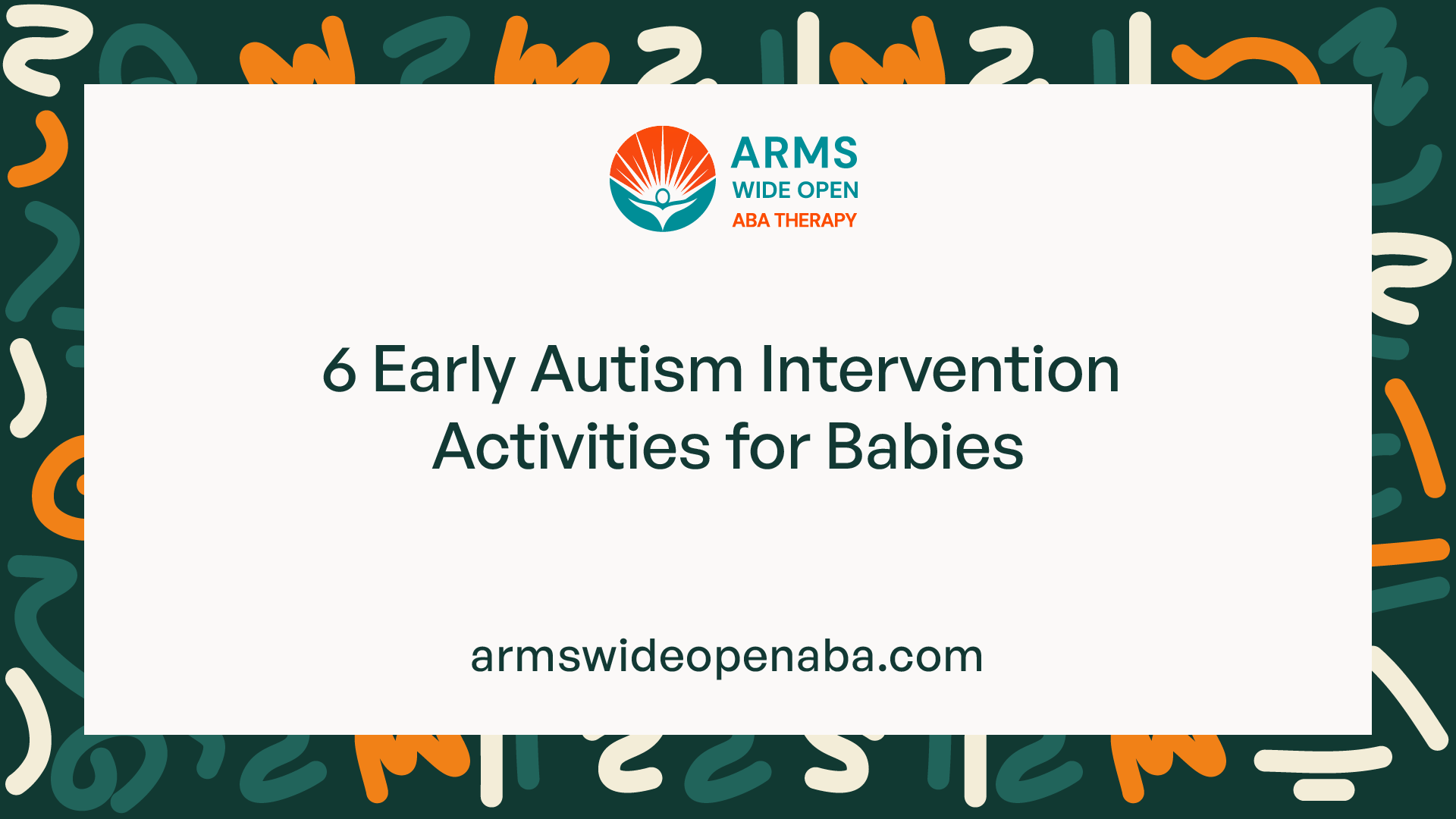6 Early Autism Intervention Activities for Babies
Unlock the potential of early autism intervention with 6 transformative activities for babies. Start their journey to growth and development now.

Understanding Early Autism Intervention
Early autism intervention plays a crucial role in supporting the development and well-being of babies with autism. By providing targeted interventions during the early years, we can help promote positive outcomes and enhance their overall quality of life. In this section, we will explore the importance of early intervention and the benefits it can offer to babies with autism.

The Importance of Early Intervention
- Brain Plasticity: The brain has a high degree of plasticity during early childhood, meaning it can adapt and rewire itself. By providing early intervention, we can take advantage of this plasticity to promote positive changes in neural pathways and support the development of essential skills.
- Critical Developmental Period: Early childhood is a critical period for acquiring foundational skills, such as communication, social interaction, and cognitive abilities. Intervening early allows us to target these skills during their optimal developmental window, setting a strong foundation for future learning and growth.
- Family Involvement: Early intervention programs often involve families, empowering them to actively participate in their child's intervention journey. By equipping parents and caregivers with strategies and support, they can play a vital role in their child's development, promoting progress both inside and outside of structured intervention sessions.
How Early Intervention Can Benefit Babies with Autism
Benefits of Early Intervention
Improved communication and language skills
Enhanced social interaction and social skills
Better cognitive development and learning abilities
Increased independence and self-regulation
Strengthened family support and engagement
Activities for Early Autism Intervention
Sensory Play
- Playing with different textures, such as sand, water, or playdough.
- Exploring sensory bins filled with items of different colors, shapes, and textures.
- Engaging in sensory art activities, like finger painting or exploring different materials.
Joint Attention Activities
- Reading books and pointing to pictures together.
- Playing games that involve taking turns, such as rolling a ball back and forth.
- Using toys or objects to encourage shared focus and interaction.
Communication and Language Development
- Engaging in interactive play and imitating sounds or gestures.
- Using visual supports, such as pictures or symbols, to support communication.
- Singing songs and nursery rhymes to encourage vocalization and language development.
Social Skills Building
- Organizing playdates with other children to encourage social interaction.
- Engaging in pretend play activities that involve turn-taking and role-playing.
- Using social stories or visual prompts to teach appropriate social behavior.
Fine Motor Skill Development
- Playing with building blocks or stacking toys to improve hand-eye coordination.
- Engaging in arts and crafts activities, such as coloring, cutting, and pasting.
- Encouraging the use of utensils during mealtime to develop self-feeding skills.
Gross Motor Skill Development
- Encouraging crawling, rolling, and playing on the floor to improve mobility.
- Setting up obstacle courses or playing games that involve running or jumping.
- Engaging in outdoor activities, such as riding a tricycle or playing catch.
By incorporating these activities into early, parents and caregivers can provide a supportive environment for babies with autism to thrive and reach their full potential. It's important to tailor these activities to the individual needs and interests of each child, ensuring a positive and engaging experience.
Sources
https://www.parents.com/baby/health/autism/early-autism-intervention-activities-for-babies/
https://www.nichd.nih.gov/health/topics/autism/conditioninfo/treatments/early-intervention
https://farazhouse.com/en/page/10679/6-Autism-Early-Intervention-Activities-for-Babies
Similar articles
We’re here to help you

Our team is here to assist you in this process. Contact us for any assistance.
it’s easy to apply
We Accept Most Insurances
Our in-network insurance partnerships make ABA therapy more accessible to families throughout our service areas.







Our Insurance Process
We'll request your insurance details to help us verify your plan's coverage for ABA therapy. Once we've received this information, we'll walk you through your benefits, including copayments, deductibles and out-of-pocket maximums, so you know what to expect in advance.
Our team will then handle the preauthorization and all the necessary paperwork.
.svg)





















.jpeg)


































.jpeg)




.jpeg)







.jpeg)











.jpeg)
















